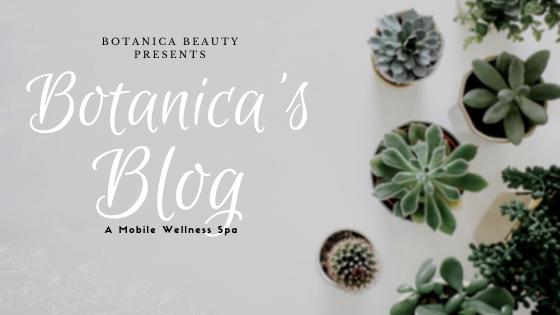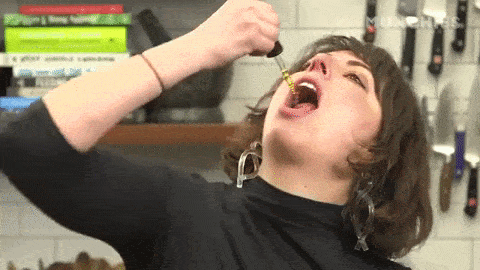CBD in Skincare
- BBeauty

- Jan 19, 2020
- 5 min read
Updated: Feb 10, 2020
Pot, ganga, dope, stinkweed, broccoli, Black Russian, Texas Tea, Maui Wowie or Colombo - however you've heard about cannabis ...
well, you've definetly heard of cannabis, right?


What Is Cannabis?
Although cannabis may seem like an up-and-coming topic, it has been used for healing and medical purposes since as early as 500 BC. The original hemp plant evolved in Asia before being introduced to Africa, Europe and - you guessed it - the Americas. Ancient Asian cultures would use the plant in herbal medicines for the ill. The fibers from the hemp plant were used to make paper and sails while the seeds were often used as food. Despite its seemingly positive history, the United States has had a tricky relationship with cannabis - to say the least. Early colonists cultivated hemp for textiles and rope that became clothing or useful items for trade. But, these early hemp plants probably contained lower levels of THC, the psychoactive compontent of cannabis. However, evidence shows that some cultures may have known about its conciousness-expanding properties and cultivated plants with higher content to be used in religious or healing ceremonies. It wasn't until the early 1900's during the Mexican Revolution that cannabis started being used recreationally. The Great Depression causing massive waves of unemployment and civil unrest sparked rumors of 'evil weed' worsening the already stirring public fear. As a result, by 1931, a prohibition was passed banning intoxicants. Today, hemp-derived CBD products -with less than 0.3 percent THC - are legal on the federal level, but are still illegal under some state laws.
Sorry, historical tangent.

Scientifically, cannabis is understood by its cannabioniods - a varied group of chemical compounds that interact with receptors in your endocannabinoid system. If you've never heard of the ED system before, you are probably not alone. It is a fairly under-researched topic as it influences your body in a variety of subtle ways. The adult cannabis plant produces flowers that contain trichomes, or resin glands, carrying terpenes and cannabinoids that mimic the effect of your body's natural ED system called phytocannabinoids. CBD and THC are the two most-popularly talked about cannabinoids. CBD is often mentioned when talking about medicinal cannabis use since it is naturally monitored in your body by the brain. On the other hand, THC is the phytocannabinoid that comes to mind when people talk about recreational use. THC causes the infamous psychoactive effect of cannabis, if smoked or ingested. It travels through the bloodstream and interacts with the ED system by binding to receptors influencing concentration, pleasure, appetite and other crucial functions.
So, Can I Get High From CBD?
No, you cannot.

Nice try though.
But, Why Not?
Do you remember middle school science class?
We didn't think so.
Back in the good old days, we learned about a concept called homeostasis. Essentially, this system keeps us in check and is constantly shifting to keep a general balance. So, if THC creates a high euphoric feeling, then ....yup. Isolated CBD extract interacts with the same or similar receptors, but can actually reduce the 'high effect'. So, if you were hoping for a euphoric, hazy, munchie sensation? You might be reading the wrong blog..
Fortunately, what we can tell you is:
Why Is CBD In Skincare Anyway?
What The Media Says:
Up until pretty recently, if you were asking around about cannabis or even CBD, you were probably told that 'the Devil's Lettuce' was a thing hippies did in the 70's.

Yeah, I know right?
Since its slow-but-steady legalization and decriminalization from the early 2000's, CBD has become a popular additive or ingredient to beauty products like lotions, serums, bath bombs, etc. Celebrities have been gushing about CBD-infused products for years now.
Mandy Moore uses CBD oil on her feet to combat pain from high heels.
We feel you, girl.
Seth Rogen endorses CBD as a treatment management tool, especially for patients with Alzheimer's disease.
Kim Kardashian shared her addiction to CBD topicals for stress and to help her 'zen out'.
Morgan Freeman talks about using CBD products to manage fibromyalgia from a car crash he experienced in 2008.
... Should we keep going?
Needless to say, a lot of people have been talking about CBD and its use in skincare or wellness products.

What History & Science Says:
Cannabis has been an important medical aid for centuries. An Irish doctor studying in India in the 1830's named Sir William O'Shaughnessy found that cannabis extracts reduced stomach pain and vomiting in cholera patients.
A study published in the Journal of Dermalogical Science in 2007 described how scientists isolated THC, CBD and other cannabinoids from cannabis plants and applied the extracts to human skin cells. All of the cannabinoids tested stopped the overproduction of skin cells that commonly causes psoriasis.
A study done in 2014 found that CBD could suppress breakouts by regulating oil production in glands found on your skin. This means CBD may be a natural alternative to commonly used acne medications like Accutane and Spironolactone.
Ever heard of terpenes?
If not, you've probably smelled them. Think of terpenes as the 'essential oils of cannabis' - research found that terpenes may work together cannabinoids to enhance medicinal effects.
What Does CBD Do In Skincare Products?
There are a bunch of ways that CBD is used and marketed in the beauty industry. The most popular form of CBD in skincare comes from CBD oil extracted from the leaves and flowers of the cannabis plant.
It is:
An antioxidant that rejuvantes the skin
An anti-inflammatory agent
An analgesic (pain-killer)
A free radical damage treatment
Research also suggests it may:
Clear up the skin
Slow down the visible aging of the skin
Help with cognitive decline
Decrease production of sebum in the skin leading to acne
Treat dry skin, eczema and psoarisis
Reduce anxiety
Should I Use CBD-Infused Products? Why Or Why not?
Good news! According to the World Health Organization, trying out some new CBD-infused lotions should be safe. But, we will defintely keep updated as new research comes out about its full range of effects and uses. If it makes you feel better though, an article in Forbes on the global CBD skincare industry noted that it is expected to be valued at $1.7 billion dollars by 2025 - so the CBD trend is not going anywhere any time soon. Dr. Adarsh Mudgil, a double board-certified dermatologist explained in Forbes that “there is likely no harm in continuing to use a CBD-infused product you like” and “if you happen to have a reaction from a CBD topical product, it's likely not from the CBD itself, but some other ingredient like a botanical." At least, if the CBD truly does nothing for your skin, the added moisturizing effect is a bonus.

How Do I Know What Product Is Right For Me?
Paying attention to what you purchase before you purchase it can help you determine what products are best for you. This is important because CBD-infused products are often seperated based on their concentration of the extract. If you are a newbie, try to stick to lower concentrations of CBD in topical products like lotions. For more experienced cannabis users or people suffering from serious pain management problems, higher concentrations may be just what you need. Look for products with terms like 'hemp extract' or 'cannabidol' to ensure you get naturally-grown CBD products rather than synthetically-made copies. You may come across several other terms during your quest for the perfect product. If you don't mind the slight possibility of the psychoactive effects of cannabis, purchase 'full-spectrum' CBD which includes all cannabinoids including trace amounts of THC, whereas 'broad-spectrum' CBD lacks any amount of traceable THC. Be careful! A 2017 study found that 60% of online CBD products are incorrectly labeled. Quality definitely matters.

Have you tried CBD-infused beauty products? Did you like them? Or have you already shipped them back and asked for a refund? Let us know you experience in the comment section.





Comments